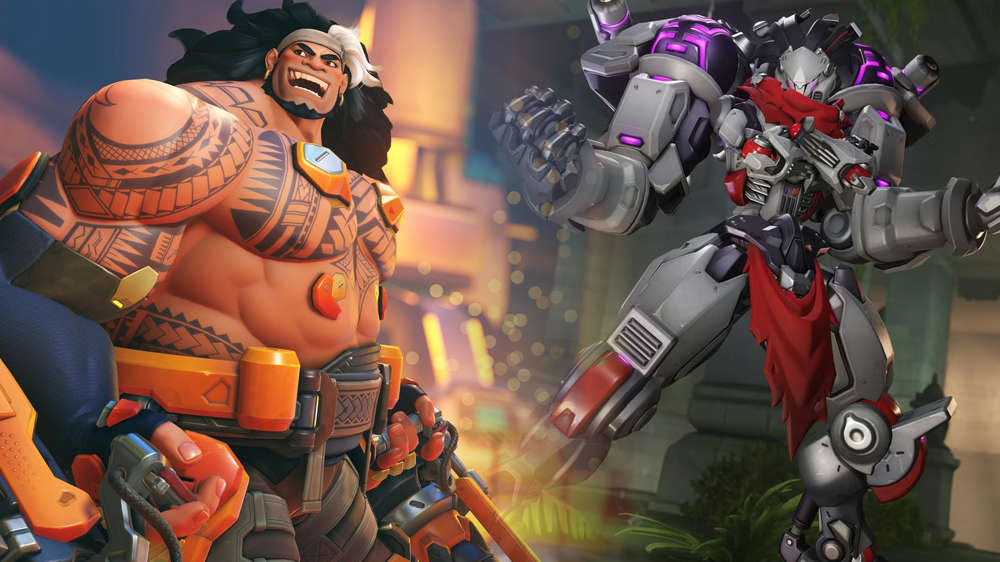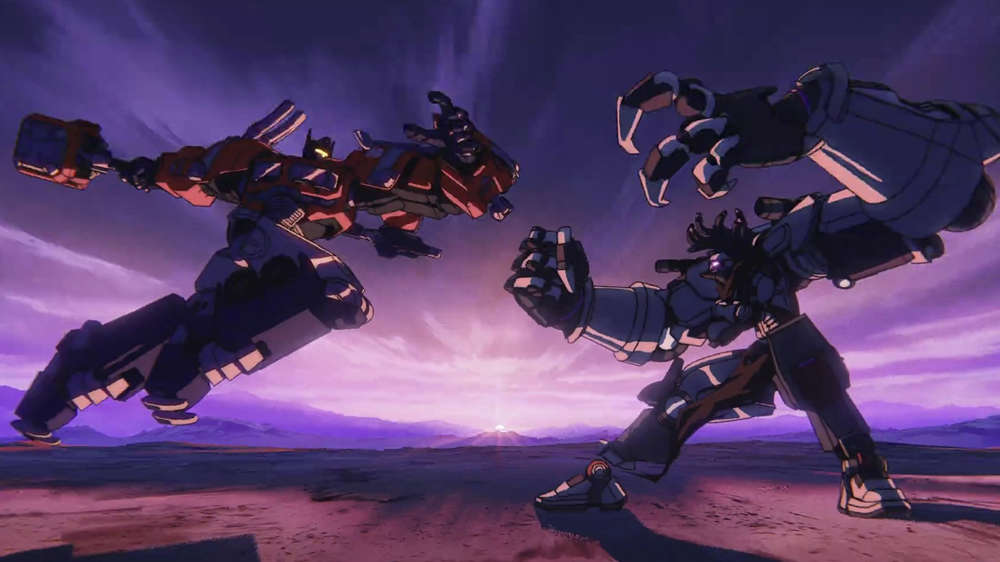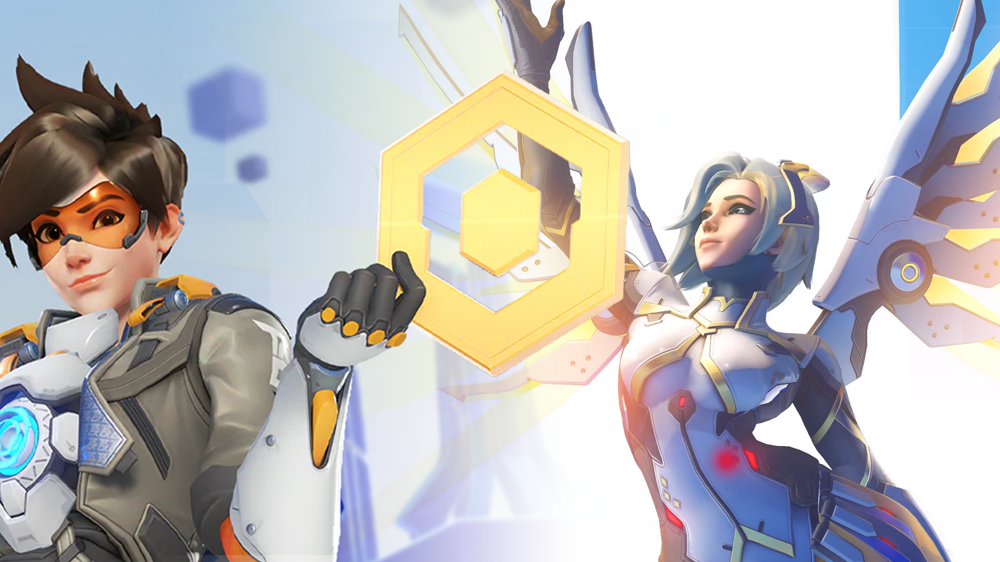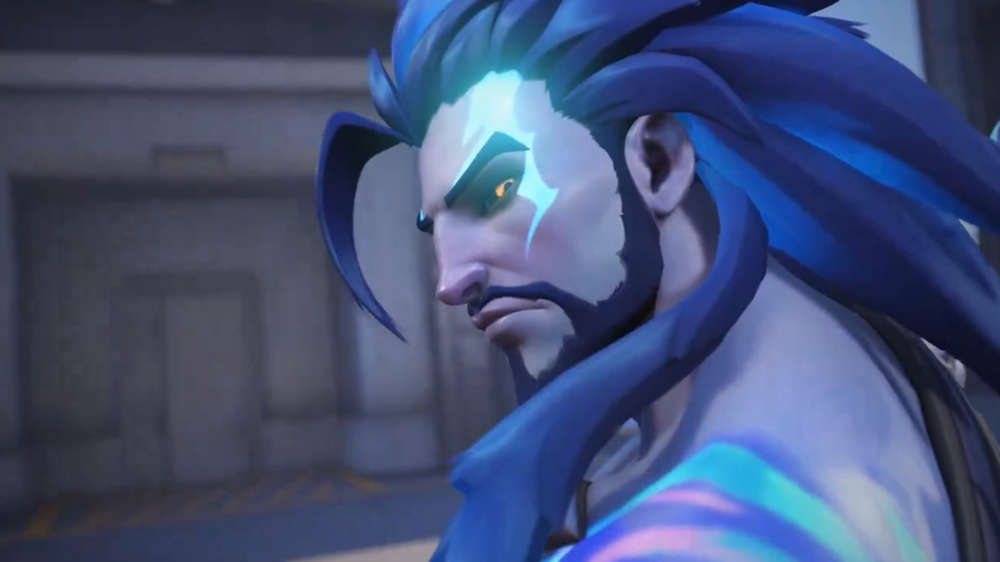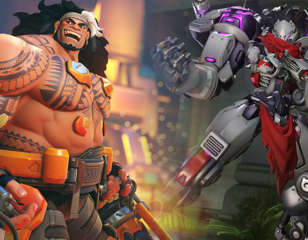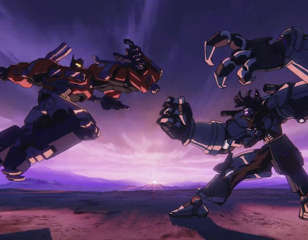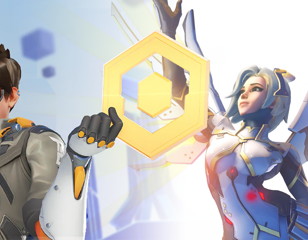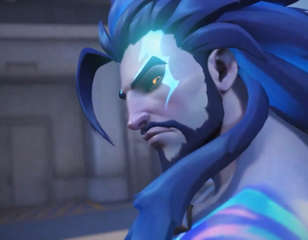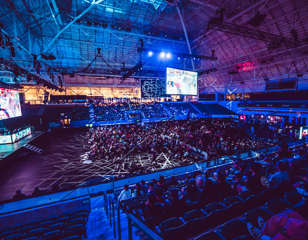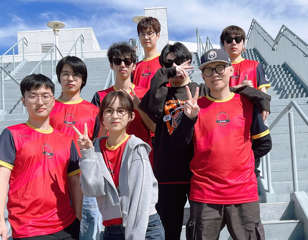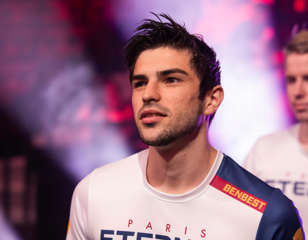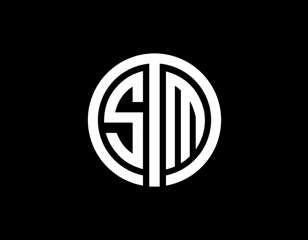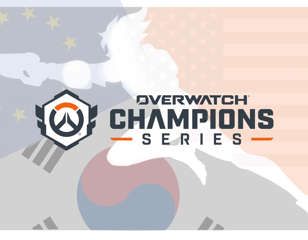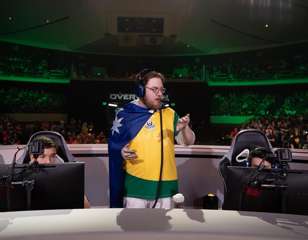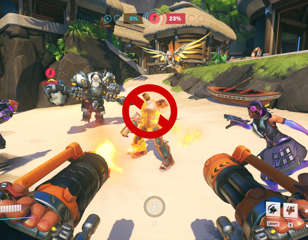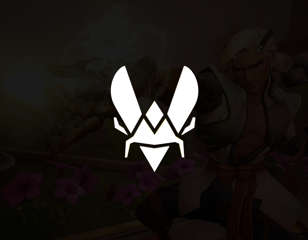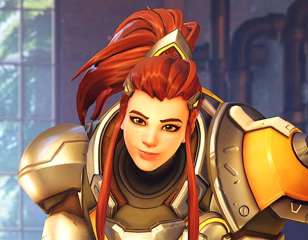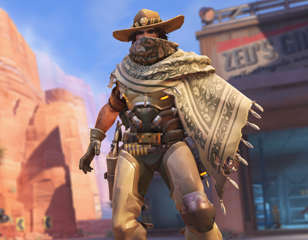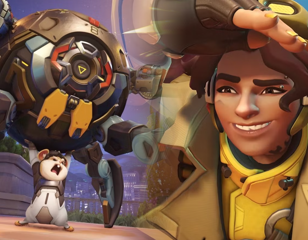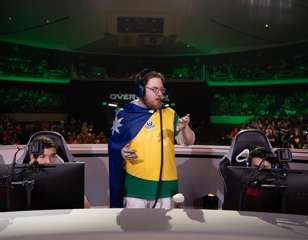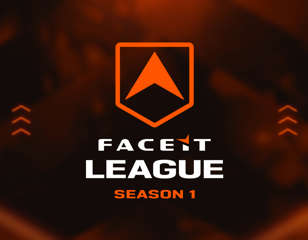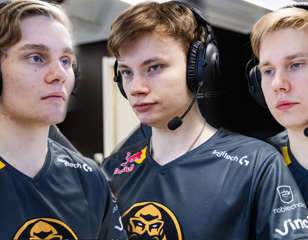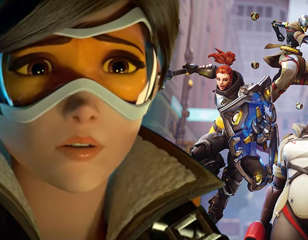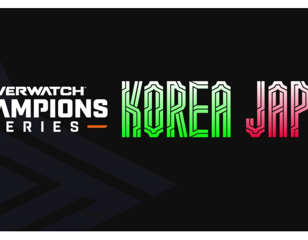Barroi On Setting Culture With Titans, Metrics Of Success In Overwatch 2, And More
From stats to culture, Vancouver's new GM has big plans for the franchise.

Joseph "Volamel" Franco
25th Oct 2022 14:00
Images via Blizzard Entertainment
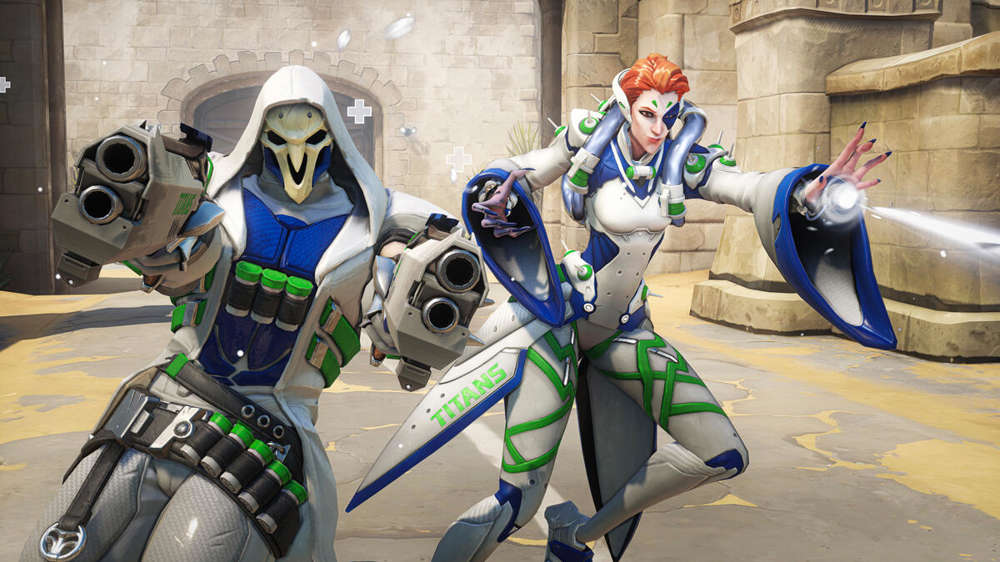
The grandfather of competitive Overwatch stats, Dennis "Barroi" Matz, has landed in Vancouver. From tracking the numbers through Winston's Lab and assisting with the Toronto Defiant and Boston Uprising, Barroi has made the leap to helming the front office for the Vancouver Titans as they head into the 2022 post-season. He spoke with GGRecon about what drew him into the role, which player the world has been sleeping on, and more.
From Winston's Lab technician to assistant coach, you've seen quite your fair share in Overwatch. Why move to General Manager? What called you to the front office?
"I think one thing that's enticing is generally the feeling of having control. I think anyone likes having some sense of control. I like having control over some things but am okay with giving it up.
The thing is, it's hard to value your performance if you're an assistant coach or an analyst, but if you're the general manager you have a straight evaluation. It is pretty easy to evaluate yourself.
Did the team do well or not? At the end of the day, it's your fault.
That position suits me a lot better just in terms of a general skill set. I don't think I would be well suited to ever becoming a head coach just because there are some things that I'm lacking that I would want my head coach to have.
For me, it was the most logical decision where I can still apply some of my skill sets in being very analytical, using statistics and helping the coaching staff in that way. I could also work more on the logistics side, build a good team, and have a good culture—everything related to the general manager position.
That, in general, suits me more than being a straight-up head coach."
With that experience in mind, what do you hope to bring to the Vancouver Titans moving into 2023?
"The biggest thing I want to bring to Vancouver is a team culture that everyone can identify with.
I was very lucky to have some nice examples from being in Boston where the idea of the team culture we wanted to create, that [the staff] wanted to create, was very good. Where players could identify with it, but sometimes it doesn't always work out the way you want. In a vague way, talking about what structure they want and how they want to buy into this idea of being a 'team'.
At the end of the day, the biggest thing that leads to success—besides being good at the game—is to just make people identify with this idea of togetherness, of being a team. Being an 'us' instead of an 'I'.
This is a big thing that I saw that Vancouver didn't do for the last two years so I have some ideas on what I want to do and how I want to make there is a clear idea of how we succeed and putting that as the number one thing we strive for but at the same time, I want to create a culture where people are just okay with being together and having fun with each other.
So culture setting, discipline—which is part of the culture—and scouting. I think I'm pretty decent at scouting people on the lower end. I think everyone can point out the best players in the world but when it comes to figuring out more [unknown people] I have an idea of who and what I'm looking for. That's something I want to bring to Vancouver, for sure."
We've heard in the past that flex supports were generally correlative with success, think you coined the term the "golden ratio" for that, the same goes for veterans, but with Overwatch 2's shift in design philosophy, what would you say are some of the most significant changes to its success metrics?
"The golden ratio thing was pretty interesting because that was the case for pre-Overwatch League and the first season of the Overwatch League, where having a good flex support was more impactful than having a good DPS player because the level of the DPS was generally more close. You always have to think about it relatively.
You could say there is a lot of good DPS, but there weren't a lot of good flex supports.
So actually having a good flex support was more impactful to winning. Generally speaking, that was the case for all of the pre-Overwatch League stuff and the first season. I didn't really keep track of it after that but I think that with time going on, DPS got a little boost in terms of their impact, but still to this day, generally speaking, I think that supports and tanks have a higher correlation of success.
So with Overwatch 2, it has thrown a lot of things around.
There is stuff I've never published—and still won't—around different correlations of the game and their relationships with success.
For example, you mentioned veterans and how in every season of the Overwatch League they correlated with success. It was surprisingly large. Meaning that if you had more veteran players on your team, you were more likely to win. Which made it fairly easy to determine who you wanted to get on your team. Because maybe you're not looking as much at rookie players.
With Overwatch 2 coming out, not just the whole 'golden ratio' thing but everything. Now the veteran thing is completely irrelevant now for this season of Overwatch League. Generally speaking, it doesn't matter if you have veterans or rookies because both have had similar amounts of success. There is really no correlation to say that either having more veterans on your team leads to more success or vice versa, right now. So you'd want a good mix.
Which, at the start of the season, it's hard to think that because for the last four years that was one of the biggest indications of winning the season. So that was thrown on its head. There were other things that were thrown on their head, and a lot of other correlations got a lot smaller.
[Another] example is the amount of impact experienced coaches have, but yeah, it's interesting.
In terms of role value, like what value DPS and supports have, I think that with flex supports—it is just not the same thing as it was previously where you just want a really good flex support and that is the biggest piece in your roster. I think with Overwatch 2, in general, I think that everyone can agree that having a single tank on your team [is good]. The role was already contested because there weren't very many great players out there, but now that there is only one tank on a team it makes it even more impactful.
If it's the most impactful role or not, I don't really know. I'd have to do some research—but I also probably would say that, if I did know.
Generally, Overwatch 2 threw a lot of things on their head and you couldn't necessarily predict that it would happen. And that made it hard to figure out what you wanted at the start of the season and it will probably still be hard next season to determine what you want but it's also a good reminder to not stick to your guns."
You've seen it all. From the APEX Era straight through to Overwatch 2's debut, you've seen a slew of talented players. For your money, which player—from a statistical standpoint—is the most underrated and why?
"In a way, it's hard for me to answer because I'm not always listening to the broadcast or reading Reddit about that kind of stuff. So, I'll just give what I think the impression of the audience is.
I felt like someone who was very undervalued this year has been [Ham "SOMEONE" Jeong-wan]. I feel like this guy has been insanely good and I'm pretty sure Florida would want him to be on the team next year.
If I think through all of Overwatch history, that's tough. I mean, [Kim "Fleta" Byung-sun] before he got into the league? Right now I'd guess he's pretty highly valued, but he's getting older now. Unlucky.
Actually, I thought [Hadi "Hadi" Bleinagel] was pretty good. I mean I'm glad that he got into the MVP votes because I think he deserves it. This was one of the players who, back on Toronto, he was my number one western option. On Boston, we obviously had [Leyton "Punk" Gilchrist] so we didn't really think about that, but he's always been, in my opinion, a high potential and possibly a high-value player. I'm glad he's getting some of that success with London and obviously being one of the MVP candidates."
And we've got to ask; who do you have winning the 2022 Overwatch League MVP?
"[Choi "Hanbin" Han-been]. 100%.
There is a case to be made for [Kim "Proper" Dong-hyun] just because he's so outstanding.
I think it would be so unfair to Hanbin, to not give him MVP over Proper—I don't care. Proper can have Rookie of the Year and he could have MVP next year if he wants to—and he probably will. He probably will be next year because he plays a flashy role and all that stuff.
I think that Hanbin has been so consistently insane for the last two years now that it would be such a crime to not give him the MVP. He's playing a role—anyone who isn't playing DPS is always overlooked because they're the ones to make flashy plays and the tanks and supports are just there. You don't really think about how well a Brigitte is Armor Packing, you know? The same goes for tanks even though it is sometimes hard to judge visually speaking and with how observing works.
But I think Hanbin has been incredibly outstanding and I think he's a big reason why Dallas is as successful as they are. I hope he wins some kind of award this year. I hope he wins MVP—but I doubt it honestly because I think Proper will get it.
Unlucky."

About The Author
Joseph "Volamel" Franco
Joseph “Volamel” Franco is a Freelance Journalist at GGRecon. Starting with the Major League Gaming events 2006, he started out primarily following Starcraft 2, Halo 3, and Super Smash Bros. Melee, before transitioning from viewer to journalist. Volamel has covered Overwatch for four years and has ventured into VALORANT as the game continues to grow. His work can also be found on sites like Esports Heaven, HTC Esports, and VP Esports.
Related
More Like This
OWL-winning Coach of the Year retires due to 'lack of financial incentives'
One of the main characters of the last two years of competitive Overwatch just retired, citing gruelling work hours and a lack of income opportunities. Is this yet another canary in the coal mine event for the esport?
34 weeks ago
